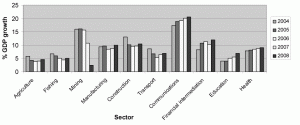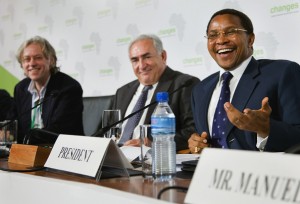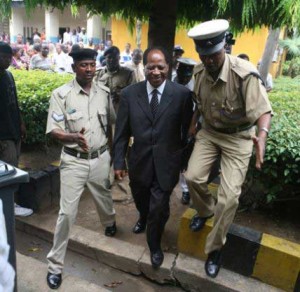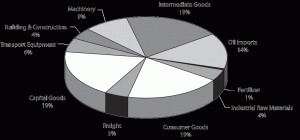In his 2008/09 budget the Finance Minister projected that the inflation rate would be controlled at below 7% by the end of June 2009. As previously noted in this section of TA the Bank of Tanzania (BoT) is primarily charged by law with maintaining price stability. Hence, they have declared on their website that inflation is their enemy number one. Since they are yet to name their number one friend or rather the ideal inflation rate, it would probably be safe to consider the projected rate as their targeted rate.
However, in 2008, the average inflation rate was recorded at 10.3% with the highest rate being 13.6% in December. By the end of June 2009 it was 10.7%. With such a wide divergence from target one may wonder whether it would be safe to conclude that BoT is failing in its primary objective!
In the June 2009 biannual Monetary Policy Statement the BoT only promises to restore and maintain a low and stable inflation rate which begs the question “what is a low and stable inflation rate or is it a moving target? From previous experience on price stability, particularly the period of falling inflation from 1995 to 2005, a 5% rate would appear to be the ideal to ensure stable prices without jeopardizing economic growth.
The BoT tends to adopt a post mortem-rather than a pro-life approach to reporting, be it monthly or annually, their reports focusing only on what has happened and not what is likely to happen and how they intend to achieve their set targets. The future will be shaped rightly or wrongly by the choices we make today. These choices can sometimes be difficult and may be painful as we witnessed when the government chose to pay foreign debt in the early years of Mkapa’s presidency. In the end the rewards in debt relief, good creditworthiness, increased budgetary support, low inflation rate, sustained economic growth, etc did however justify those choices.
It is high time for the BoT to set out not only why the inflation target could not be met but what they intend to do to achieve it. This will also allow them the chance of bringing to government’s attention the direction of fiscal policy and its potential impact on inflation.
Tanesco (the national electricity company) is still malfunctioning and the government is still unable or unwilling to reform it. There is increasingly heavy reliance on thermal electricity generation to meet increasing demand which leads to high energy costs and provides an erratic supply.
To sustain a projected GDP growth rate of above 7% would require an increased demand for energy and, as western countries’ economies starts to grow, there would be an upward pressure on the oil price which, in turn, would have a further negative effect on the value of the shilling and hence energy and transportation costs and food prices.
With all this in mind the chance of containing inflation at the perceived ideal rate of 5% without transparent, pro-active and coherent policies, which clearly set out a medium to long-term inflation, this outlook is remote.
Joseph Sabas




